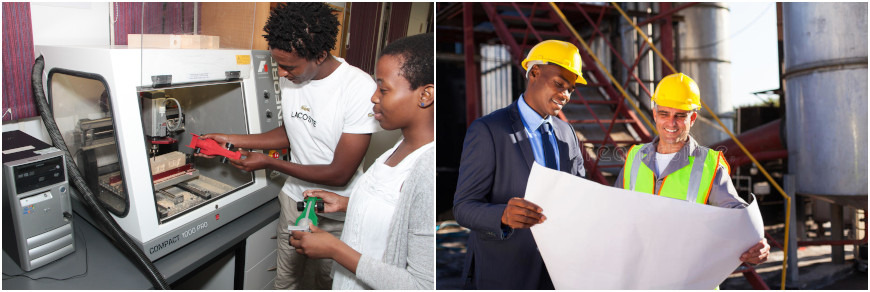Departments Engineering & the Built Environment
- Architecture
- Chemical Engineering
- Civil Engineering and Geomatics (Durban)
- Civil Engineering (Midlands)
- Construction Management and Quantity Surveying
- Electrical Power Engineering
- Electronic and Computer Engineering
- Industrial Engineering
- Mechanical Engineering
- Town and Regional Planning
- Urban Futures Centre
FEBE Programmes
Follow Us On Social Media
 @dut.febe
@dut.febe
 @dut.febe
@dut.febe
 DUT Faculty of Engineering and Built Environment
DUT Faculty of Engineering and Built Environment
 DUT Faculty of Engineering and Built Environment
DUT Faculty of Engineering and Built Environment
HOD Positions Available


| Handbook | Timetables | Job Advertisements | BEng Tech | Honours | MEng | DEng | Student Achievements | Staff |
| Student Notices |
VISION
To be a strategic partner that communicates progressive knowledge of organized human activities and socio·-technical systems.
MISSION
Our mission is to:
– Strengthen partnership with relevant stakeholders
– Provide innovative teaching and learning practices
– Develop research capacity in Industrial Engineering
What is industrial engineering
Industrial engineering focuses on improving processes. Industrial engineers analyze and optimize systems such as waiting in line at a theme park, boarding an airplane, helping people at a bank, answering calls at a call center, as well as manufacturing processes such as making airplane parts, car parts, household appliances, food, soda, bottled water, and so on. Industrial engineers will have to take a wide range of support classes such as calculus, physics, chemistry, circuits, and materials engineering. Although the most important support class that an industrial engineer will take is statistics. Statistics is crucial because in the real world processes, such as time it takes to help a customer in line, often can follow some kind of distribution, (which can’t be represented by an equation as easily). Overall industrial engineering is great if you enjoy statistics, working with people, and optimizing profits and time for companies.
Department Achievements
Special Issue in Atmosphere, “Cutting Carbon Pollution: Focus on Industrial and Transportation Sectors”
Central Applications Office Website (C.A.O)
Industrial Engineers design systems to enable people and society to improve productivity, efficiency and effectiveness and the quality of the work environment. The systems that are the subject of Industrial Engineering design are broad and are characterized by a need to integrate both the physical and decision making capabilities of humans, together with all other aspects of the system design.
Applications to this programme must be made via the Central Applications Office (CAO):
Tel: 031 268 4444
Web: http://www.cao.ac.za
Each of the subjects listed above is only offered once in the designated semester
ENTRANCE REQUIREMENTS
Bachelor of Engineering Technology (BEng Tech) in Industrial Engineering Entrance Requirements
BEng Tech in Industrial Engineering Career leaflet
Bachelor of Engineering Technology Honours in Industrial Engineering (BEng Tech Honours) Entrance Requirements
Master of Engineering (MEng) Entrance Requirements
Doctor of Engineering (DEng) Entrance Requirements
Industrial Engineering Short Course – Introduction to Energy Auditing and Assessment
Social Media Links
Contact Information
 |
Head of Department: Professor Oludolapo Akanni Olanrewaju Tel: 031 373 6314 Fax: 031 373 2014 Email: OludolapoO@dut.ac.za Location: S4, L0 Campus: Steve Biko Campus |
 |
Secretary:Mrs K Dhavraj Tel: 031 373 2445 Fax: 031 373 2014 Email: kershnid@dut.ac.za Queries: industrialadmin@dut.ac.za Location: S4, L0 Campus: Steve Biko Campus |

